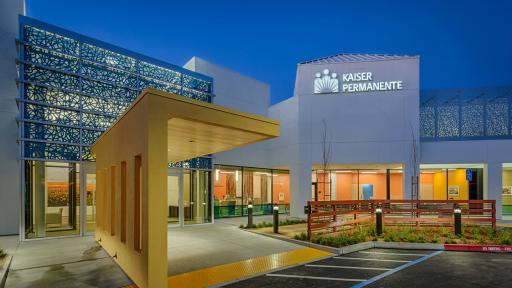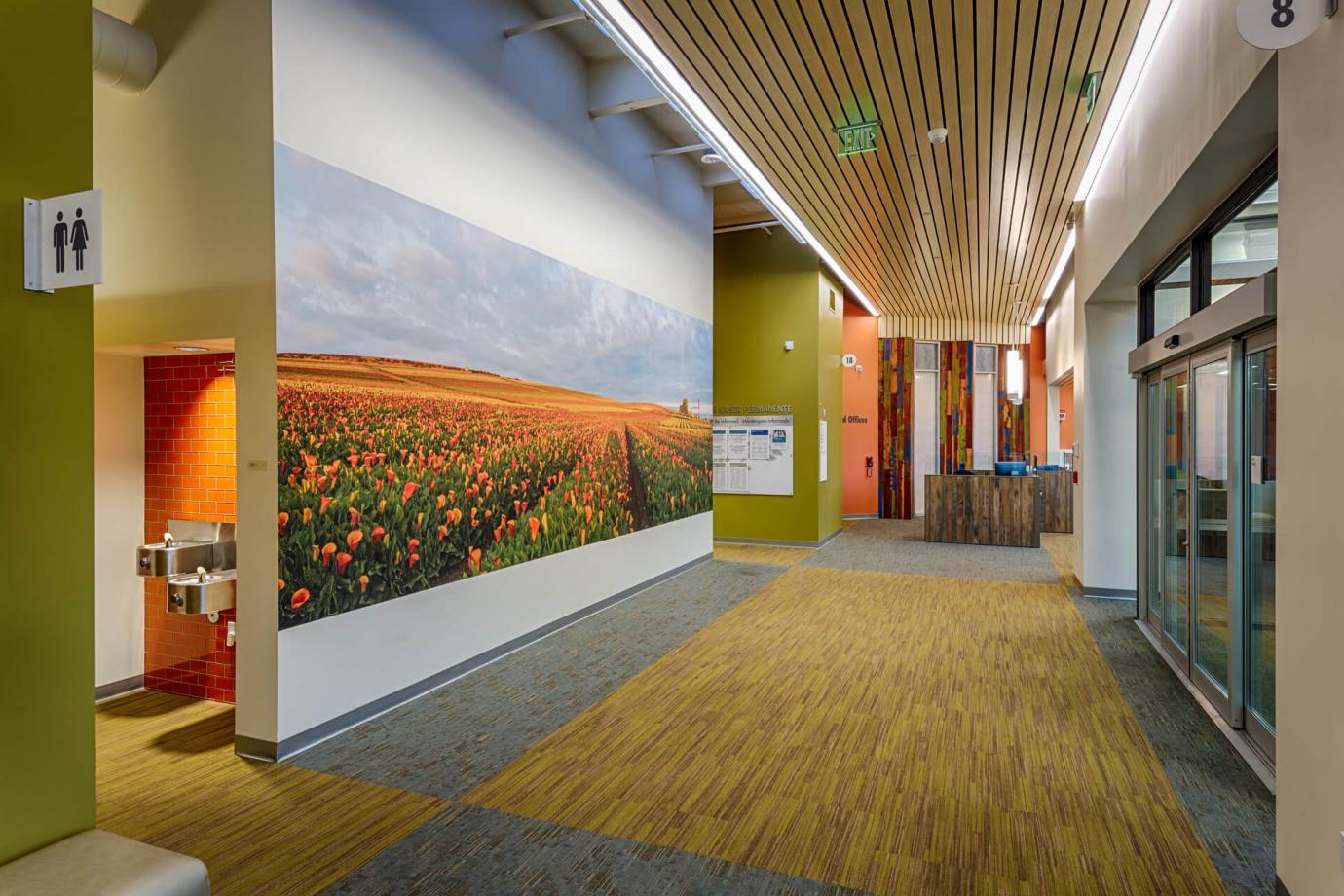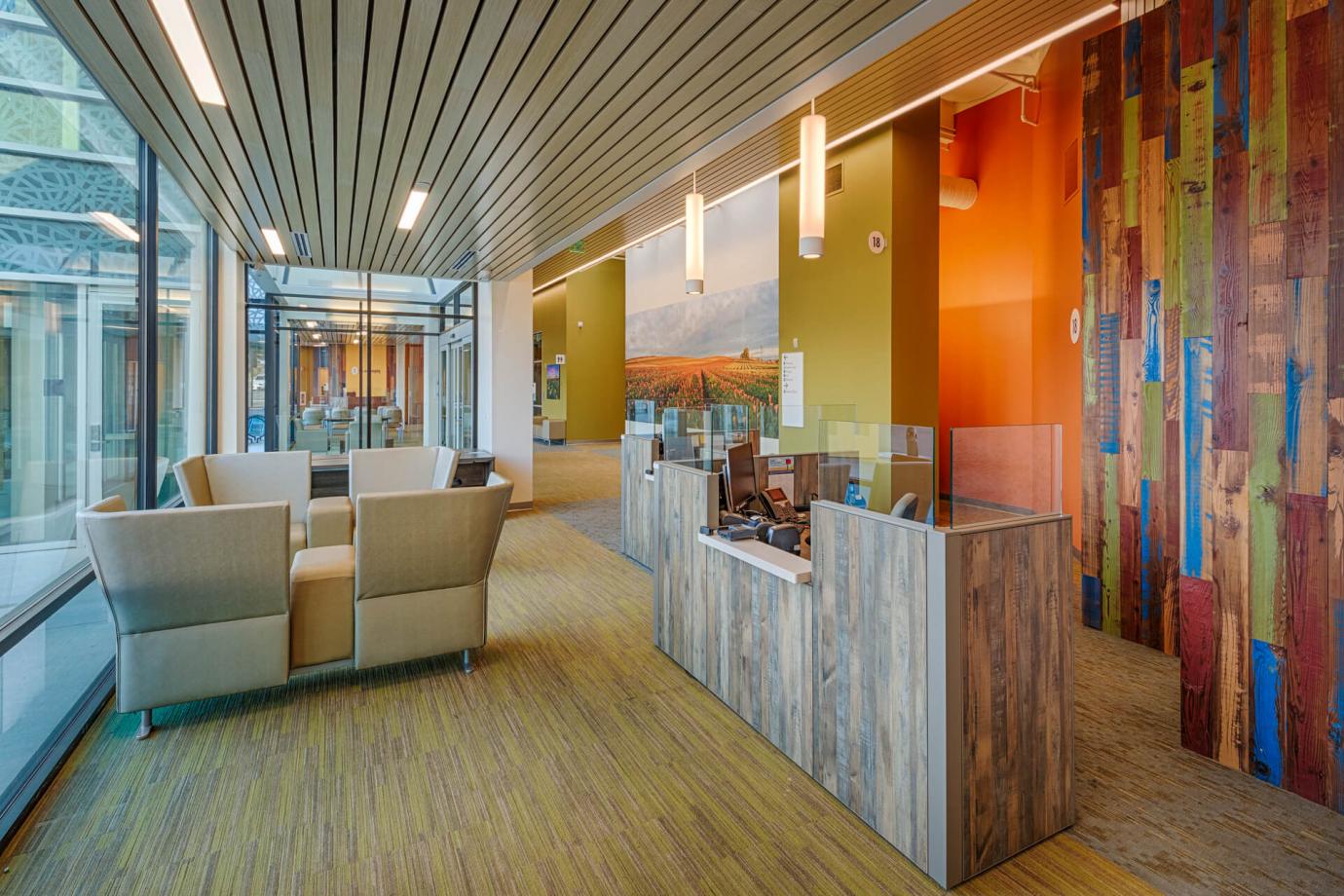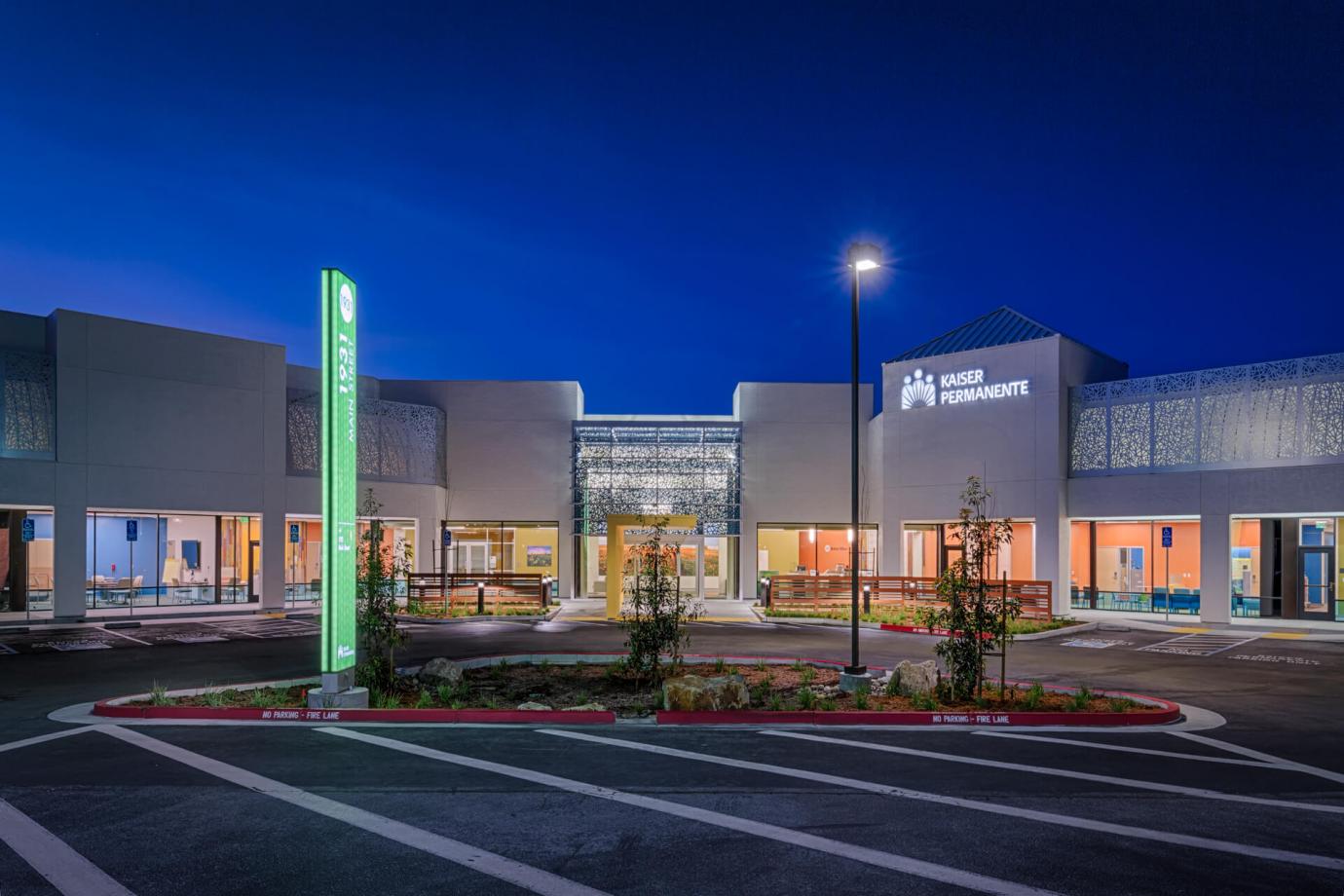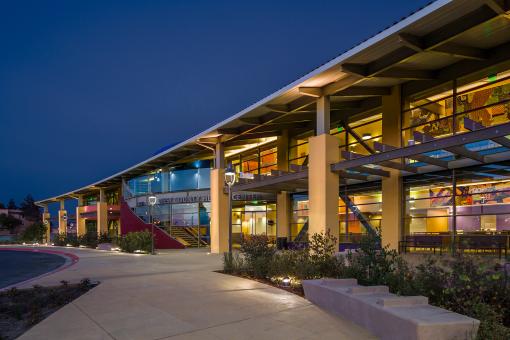Creative rehab transforms a retail center into a neighborhood clinic
Challenge: Strip malls are famous for their ubiquity, uniformity and nondescript design: usually promoting national brands at the expense of local context. However with many retail outlets failing, transforming “selling spaces” into community healing places is a new challenge for designers and communities.
Solution: Utilize strategies that are rooted in the community and the place: create a facility that celebrates the community and the region.
In reimagining this strip mall as a health facility we strove to represent the region and engage the community.
The former mall had multiple shops and entries competing for attention. Here we wanted to create one clear entry to one integrated facility: a new canopy and glass vestibule creates that clear entry. Meanwhile roof screens with a biomorphic laser-cut pattern act to tie together formerly desperate retail spaces into an integrated facility. The pattern of the roofs screens in fact relates to the plant life of the nearby wetlands. At eye level where there were former retail displays now there are large, brightly colored graphics pulled from the local agricultural region. For instance, fields of cultivated flowers anchor the entry experience. Traveling further inside, smaller scale artwork and materials also echo the local themes of agriculture and the area’s famous wildlife preserves.
The color palette and materials were also influenced by the local demographics and the environment. The warm saturated colors of orange and yellow are present in the nearby residential areas and the cool, jewel-tones of green and blue are found in the wetlands and sloughs. Salvaged redwood siding or barn-wood are used at the two registration areas, materials which could have literally been lifted from some of the local vernacular structures. Finally the carpeting mimics both the golden hills and the greenish-blue of the sloughs unique to the Watsonville area. At every turn this design is rooted in the locale and celebrates the vibrancy of this agricultural community.
With considerable rethinking, strip malls can be “upcycled” to create community health destinations. Through caring about a place and its people it’s possible to create a place of caring.
